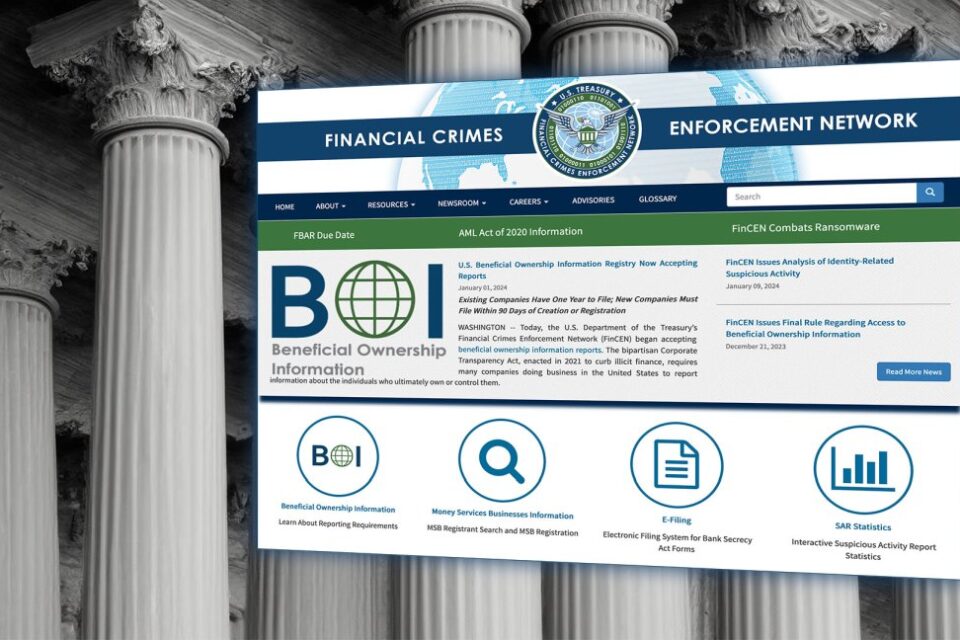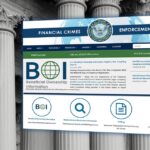US Court of Appeals halts enforcement of Corporate Transparency Act (FinCEN) in a win for small businesses and startup founders

With the January 1, 2025, deadline just days away, a federal appeals court has temporarily blocked the enforcement of the Corporate Transparency Act (CTA), which was part of new FinCEN reporting requirements. The law required U.S. businesses to disclose details about their beneficial owners. While the CTA was promoted as an anti-money laundering measure, it has faced backlash from small business groups, calling it “burdensome.”
In a ruling on December 26, the U.S. Court of Appeals for the Fifth Circuit halted compliance obligations under the CTA. The law would have mandated detailed reports from certain U.S.-based businesses about their beneficial owners to the Financial Crimes Enforcement Network (FinCEN).
This decision follows a previous suspension of the rule three weeks earlier by a federal judge, who raised concerns about the $22.7 billion initial compliance cost and annual costs of $5.6 billion. Businesses faced a January 1 deadline to submit their beneficial ownership information (BOI) unless exempt due to meeting certain criteria, such as having over 20 employees, $5 million in annual sales, and a U.S. office.
Supporters of the law, including the Treasury Department, argue that it aims to deter financial crimes and combat money laundering. They point to how shell corporations have been used to hide illicit funds. However, opponents, including the National Federation of Independent Business (NFIB), argue that the law disproportionately affects small businesses, creating heavy administrative burdens and significant costs.
The case, Texas Top Cop Shop, Inc. v. Garland, originated from a coalition of small businesses and other groups that challenged the law in the Eastern District of Texas. They argued that the CTA violated constitutional rights and placed unnecessary burdens on small businesses. On December 5, U.S. District Judge Amos Mazzant issued an injunction blocking the nationwide enforcement of the CTA, labeling it “likely unconstitutional.” He criticized the law as federal overreach and a threat to the federalist system that historically granted states control over corporate formation.
“For good reason, Plaintiffs fear this flanking, quasi-Orwellian statute and its implications on our dual system of government,” Judge Mazzant stated.
The government quickly appealed the decision, and on December 23, a Fifth Circuit panel allowed the law to remain in effect temporarily. The panel indicated that the government had made a strong case for the law’s constitutionality under Congress’s commerce-related powers. However, just days later, the same court reversed its position, vacating the stay and reinstating the district court’s injunction.
This development is a significant win for small business advocates, who have long criticized the CTA for its costs and complexity. Many business owners expressed relief, with Rob Smith, senior attorney at NFIB’s legal center, calling the decision “a welcome sigh of relief” amid widespread confusion over compliance.
“The court’s reinstatement of the nationwide injunction is a welcome sigh of relief for small businesses,” Smith said in a statement. “Since being told earlier this week that they must urgently submit their [beneficial ownership information] BOI reports, our nation’s small businesses have experienced enormous chaos and confusion.”
The Treasury Department continues to defend the CTA, emphasizing its importance in exposing shell corporations used for criminal activities. “Unmasking shell corporations is the single most significant thing we can do to make our financial system inhospitable to corrupt actors,” Treasury Secretary Janet Yellen said in a recent fact sheet.
The Fifth Circuit is expediting its review of the case, with a final decision on the law’s constitutionality expected as early as 2025. Meanwhile, legislative efforts, such as the proposed Repealing Big Brother Overreach Act, aim to roll back the CTA entirely. The ongoing legal battle underscores a larger debate about balancing regulatory demands with efforts to combat financial crimes.
For now, the future of the FinCEN reporting requirement hangs in the balance. Legal battles, potential appeals, and even political shifts could reshape its trajectory. Startups and small businesses alike will be closely watching as this regulatory drama unfolds.




